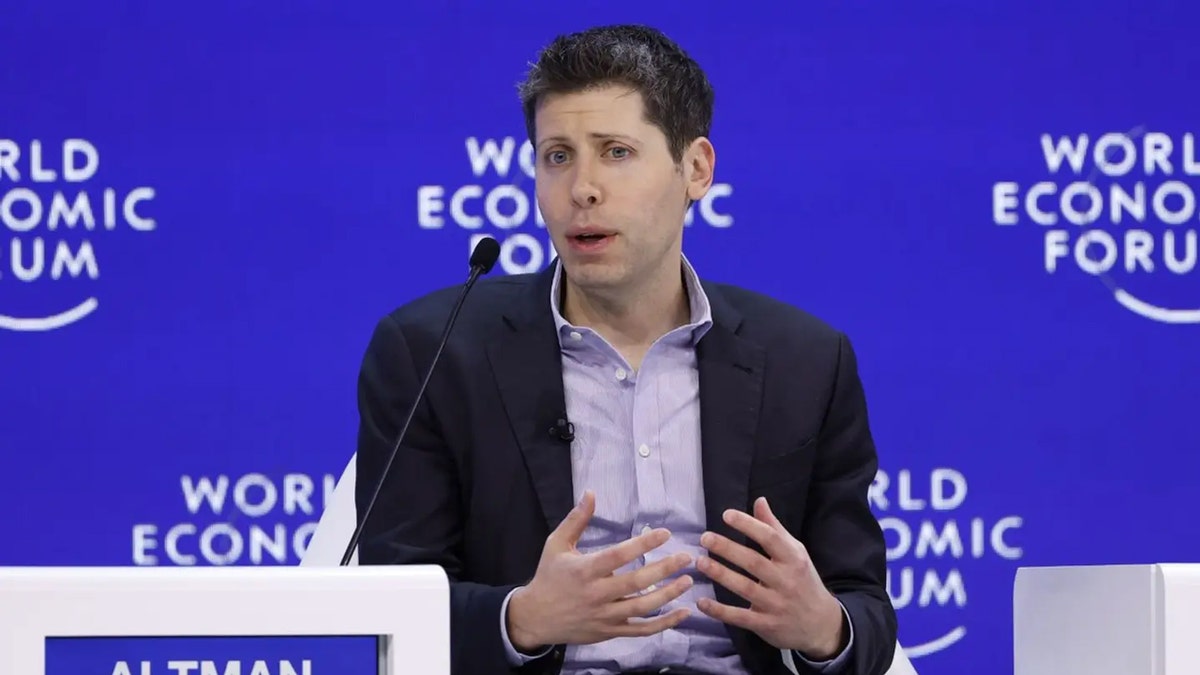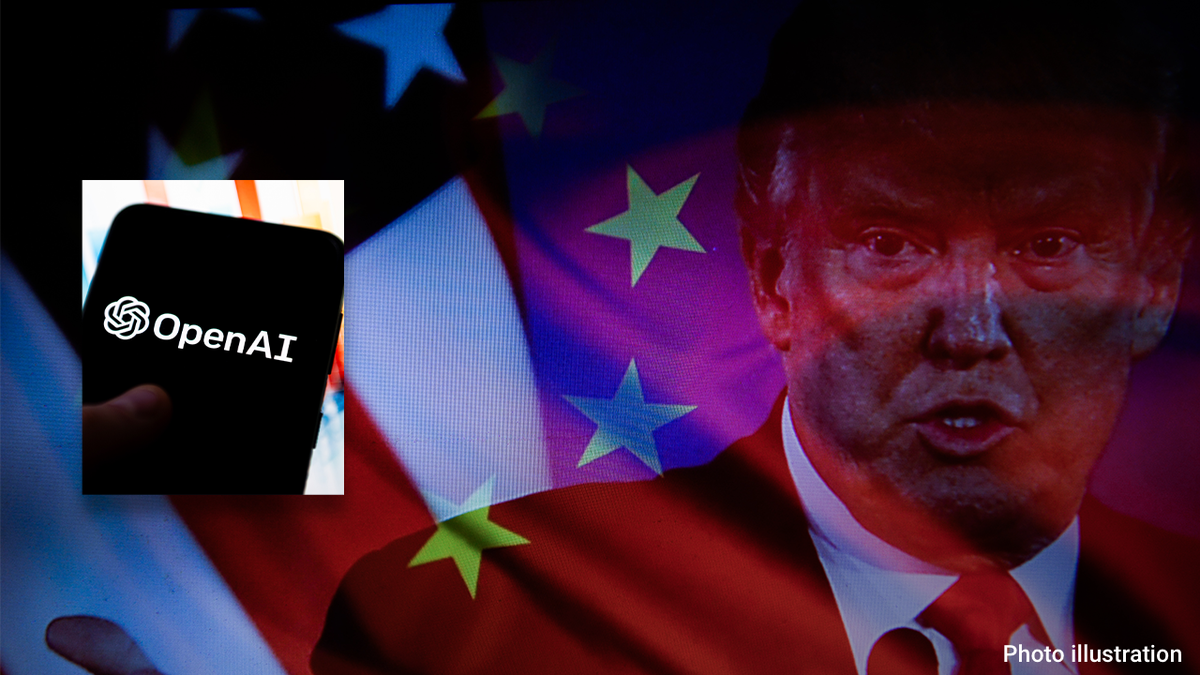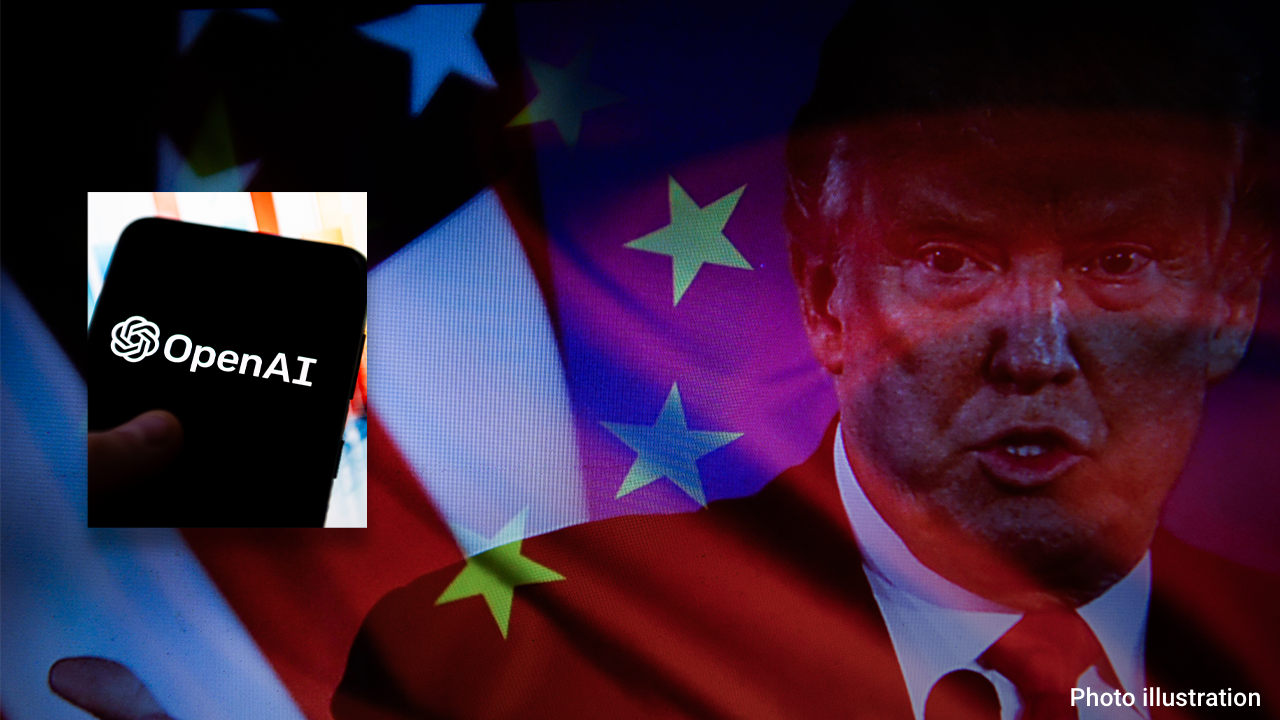OpenAI has assembled a “blueprint” for artificial intelligence (AI) infrastructure that the company hopes will be considered by the incoming Trump administration and Congress – suggesting that the plan will help the United States maintain its lead in the field over competitors like China.
The company’s Vice President of Global Affairs, Chris Lehane, announced the “Infrastructure Blueprint for the U.S.” on Wednesday during an event hosted by the Center for Strategic and International Studies (CSIS).
The company says AI’s potential presents an “unmissable opportunity to revitalize the American Dream and reindustrialize the US.”
“Investments to extend the current U.S. lead in AI will yield tens of thousands of skilled-trade and other jobs, growth in productivity and GDP; a modernized grid including power generated by nuclear energy; a state-of-the-art network of semiconductor manufacturing facilities; and a new generation of AI-powered businesses and entrepreneurship,” OpenAI claims.
PETITION CALLS FOR TRUMP ADMIN TO APPOINT MUSK AS AI ADVISER
In this photo illustration, the OpenAI logo is seen displayed on a mobile phone screen with ChatGPT logo in the background. (Idrees Abbas/SOPA Images/LightRocket via Getty Images)
The company, led by Sam Altman, also estimates that U.S.-backed projects abroad will help attract $175 billion currently sitting in global funds.
They purport that these potential investments are a beneficial alternative to China-backed projects—characterizing the East Asian country’s endeavors as a means to limit citizen access to AI, tighten government control over the populace and strengthen global influence.
“We need a national strategy now to ensure that investment in AI infrastructure benefits and protects American competitiveness, our national security and that of our allies,” the company said in its blueprint release. “This strategy should encourage rather than stifle developers, who will be the Main Street businesses of the Intelligence Age. It should support thriving AI ecosystems of labs, start-ups and larger companies that together will secure America’s leadership role on AI into the future.”
OpenAI listed a set of five initiatives to catalyze the building of AI infrastructure in the U.S. and with allies across the world.
1) AI economic zones: The company is urging state and federal governments to give states incentives that speed up the permitting and approval of AI infrastructure –thereby making it easier to complete new solar arrays, wind farms and bring nuclear reactors back online. OpenAI said states providing subsidies could include a clause that ensures a portion of the compute is made available to public universities.
HOW A RESEARCHER HACKED CHATGPT’S MEMORY TO EXPOSE A MAJOR SECURITY FLAW

Sam Altman, chief executive officer of OpenAI, speaks during a panel session on day three of the World Economic Forum (WEF) in Davos, Switzerland, on Thursday, January 18, 2024. (Stefan Wermuth/Bloomberg via Getty Images / Getty Images)
2) National Transmission Highway Act: OpenAI is pushing for a program that would give funding to stand-up transmission infrastructure for AI, including electrical power on an AI-optimized transmission grid, high-bandwidth data communications, and pipelines for other energy sources needed to power a nationwide “AI highway.”
3) Government backstops for high-value AI public works: Open AI believes the U.S. government can encourage the private sector to fund high-cost energy infrastructure projects. The government would then commit to purchasing energy and other means that lower credit risk. Furthermore, the government could direct funding to local training programs that prepare Americans for AI jobs, such as data center management and operations. OpenAI says existing state-sponsored 529 educational savings accounts
could also be altered to allow investments in coding boot camps, HVAC technician training and electrical training.
4) A North American Compact for AI: The company suggests a pact among countries in the Western Hemisphere to streamline access to capital, supply chains and talent. They believe that eventually, as it expands, the sharing of resources and information could easily compete with the People’s Republic of China’s AI infrastructure alliances.
AI-POWERED ATTACK DRONES TAKE FLIGHT
5) Tapping the expertise of the US nuclear Navy: OpenAI is pushing the government to utilize the Navy, which operates approximately 100 Small Modular Reactors (SMRs) to power naval submarines. In their blueprint, the Navy could offer their expertise to construct civilian SMR’s and “catalyze a revival of the American nuclear power that helps drive our great reindustrialization.”
“AI presents an unmissable opportunity to reindustrialize the U.S. and, through that, generate the kind of broad-based economic growth that will revitalize the American Dream. It also presents a national security imperative to protect our nation and our allies against a surging China by offering an AI shaped by democratic values, promoting individual choice and benefiting the most people possible,” OpenAI said.

OpenAI believes the incoming Trump administration should consider their ideas for the future of AI infrastructure. (Getty Images)
Leaders in both the House and Senate have emphasized that getting lawmakers up to speed on AI is a priority for Congress. However, they’ve diverged somewhat on what that means. Still, people close to the growing AI sector say they are frustrated with the pace Congress is handling the technology.
In July, Congress passed a bipartisan act to mitigate financial and regulatory challenges impeding nuclear energy development. According to Pew, a majority of Americans favor an increase in nuclear plants to generate electricity.
TRUMP’S FIRST CABINET PICKS DECIDEDLY NOT ISOLATIONISTS: UKRAINE, ISRAEL BREATHE A SIGN OF RELIEF
Still, the shutdown of nuclear reactors continues to outpace new construction.
President-elect Donald Trump took a skeptical stance on nuclear energy in his interview with podcaster Joe Rogan leading up to the election.
“There’s a little danger to nuclear,” he said. “You know, we had some really bad nuclear.”
Trump took issue with two proposed reactor projects that crumbled under his administration. Still, he pointed to France as an example of how countries can invest in nuclear and make it efficient.
CLICK HERE TO GET THE FOX NEWS APP
“France does it. France is largely nuclear,” Trump said. “And they build small, little, compact plants, and if they build more, they build the same thing, and they hook it up.”

